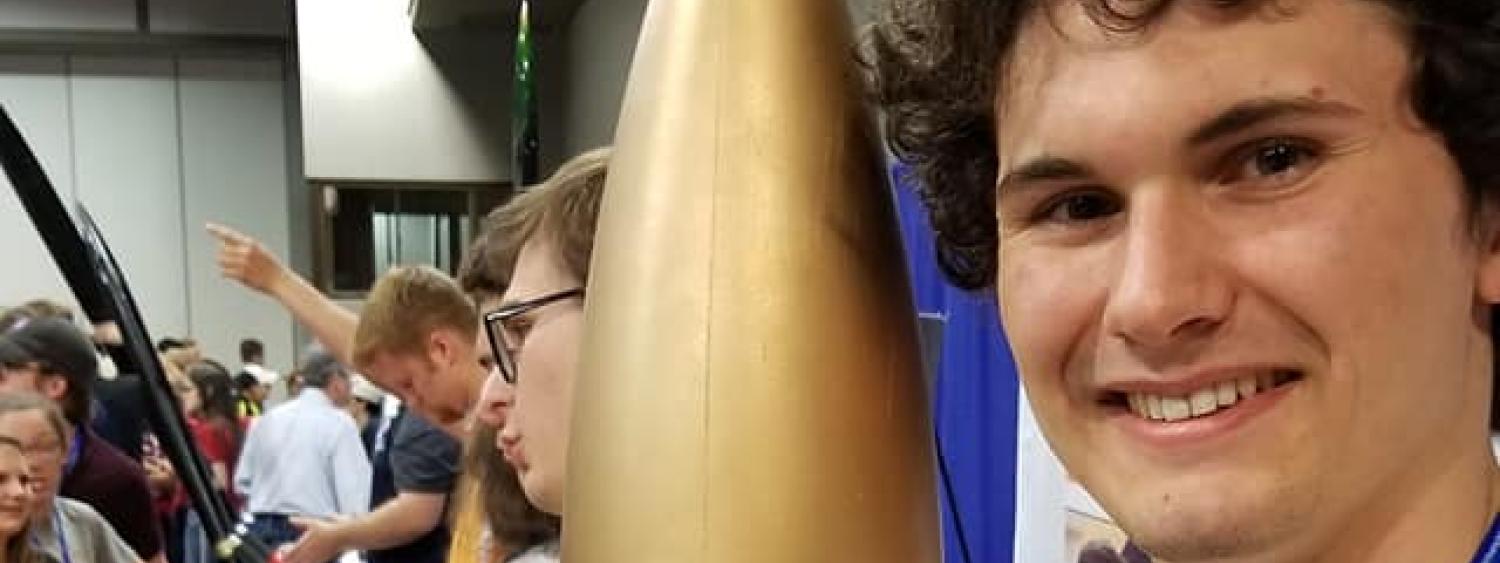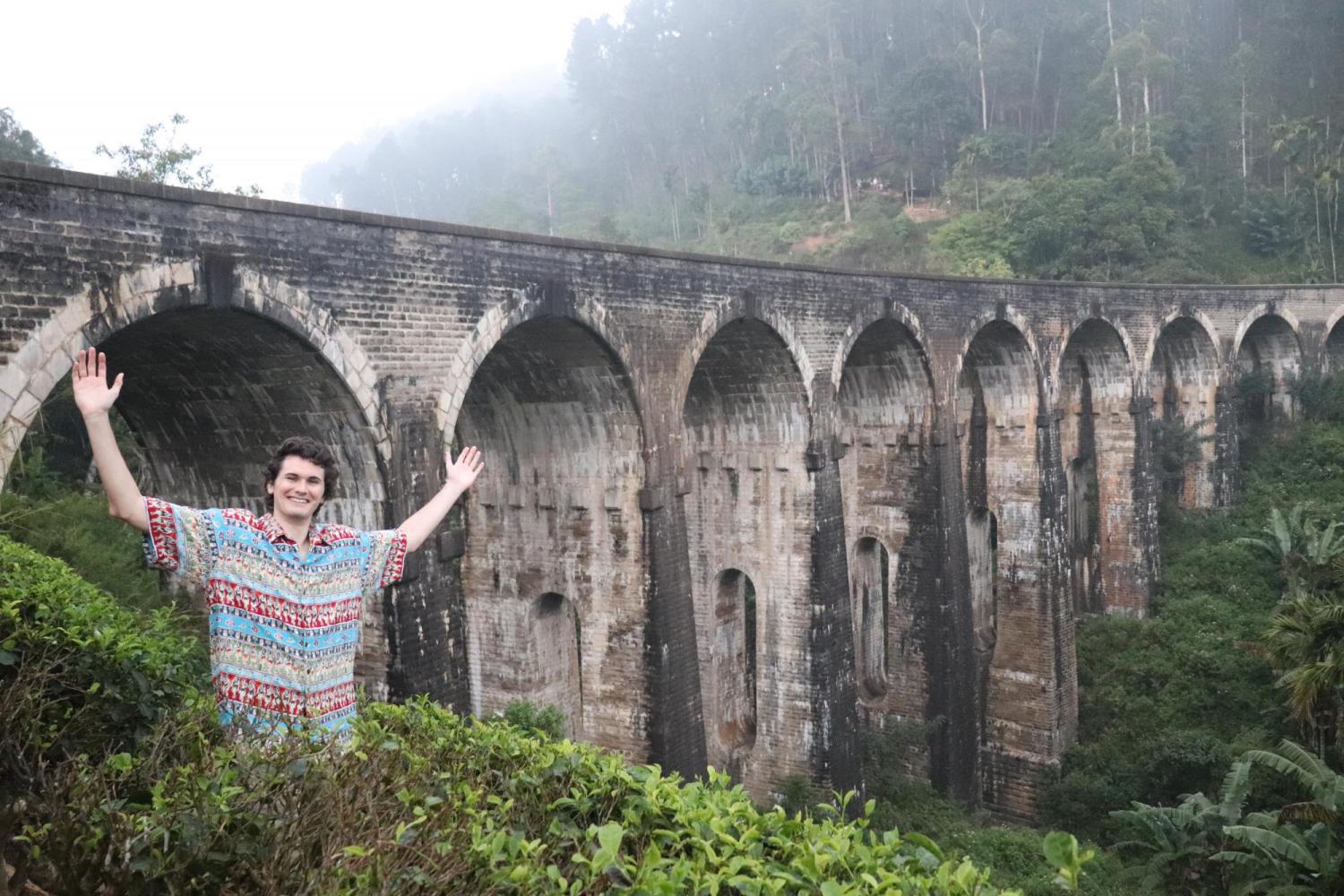Morency takes off with NDSEG fellowship for hypersonics research

Connor Morency at the NASA Student Launch Competition in Huntsville, AL in 2019 with, Ares the rocket his team from Vanderbilt designed. They placed first in the competition.
Connor Morency has landed a major Department of Defense fellowship to advance the frontiers of high-speed flows.
A PhD student and Smead Scholar in the Ann and H.J. Smead Department of Aerospace Engineering Sciences, Morency has earned a 2021 National Defense Science and Engineering Graduate Fellowship (NDSEG), which recognizes promising students pursuing doctoral degrees in science and engineering relevant to U.S. defense.
“It’s an awesome honor,” Morency said. “You’re up against so many other qualified people and I’m really excited.”
Morency’s work focuses on hypersonics, where the minimum speed is it least 3,836 mph, or five times the speed of sound. Spacecraft reentering the atmosphere exceed such speeds, creating extreme heat conditions and unique physics problems.
“I’m really interested in both high-speed flows and outer space, which together lead to the study of atmospheric reentry,” Morency said. “We’re identifying specific regions of high drag and/or thermal buildup on a hypersonic vehicle, then running simulations in order to optimize those regions for performance and safety.”
As an undergraduate at Vanderbilt University, Morency majored in mechanical engineering. Although he always had an interest in outer space, it wasn’t until he enrolled in an astrophysics class that he realized he wanted a career in space exploration.

After completing his undergraduate degree, Connor spent a year studying in Asia through the Henry Luce Fellowship. Here he is visiting the Nine Arch Bridge near Ella, Sri Lanka.
“To this day, it is one of the coolest courses I’ve taken,” Morency said. “It put a whole new perspective on life for me, thinking about Earth from the outside, how small we are, how much more we have to discover. At the end of the day, that’s what keeps me going: I want to advance space exploration.”
The NDSEG fellowship provides full tuition and fees coverage for up to 36 months, a monthly stipend of $3,200, additional funds for health care and up to $5,000 for travel expenses that support the professional development and education of fellowship winners.
“I’m really excited about the freedom it’s going to give me, to be self-funded,” Morency said. “With most research assistance money, you have to work on what that grant wants you to work on. With this, I can really explore.”
In pursuing his PhD at CU Boulder, Morency was drawn by the Smead Fellows Program. As a fellow, it offered funding for the first year of his education as well as ongoing professional development and industry connections.
“I want to eventually become a leader in my field, and that is something that is reinforced by the Smead Program. They’re going to help me get there.”
When it comes to a future career, Morency has broad interests, and with multiple years left in his PhD program, plenty of time to decide. However, he has high aspirations to one of the most exclusive organizations on Earth and beyond: the NASA Astronaut Corps.
“I’d definitely like to work in industry, because that’s where a lot of the exciting things in aerospace are happening right now,” he said. “I also have interest in being a professor down the road, but I have always dreamed of being an astronaut. Being selected is a one in a million kind of thing, I know, but when I am eligible, I will apply.”
Visiting Great Sand Dunes National Park in June 2021.

